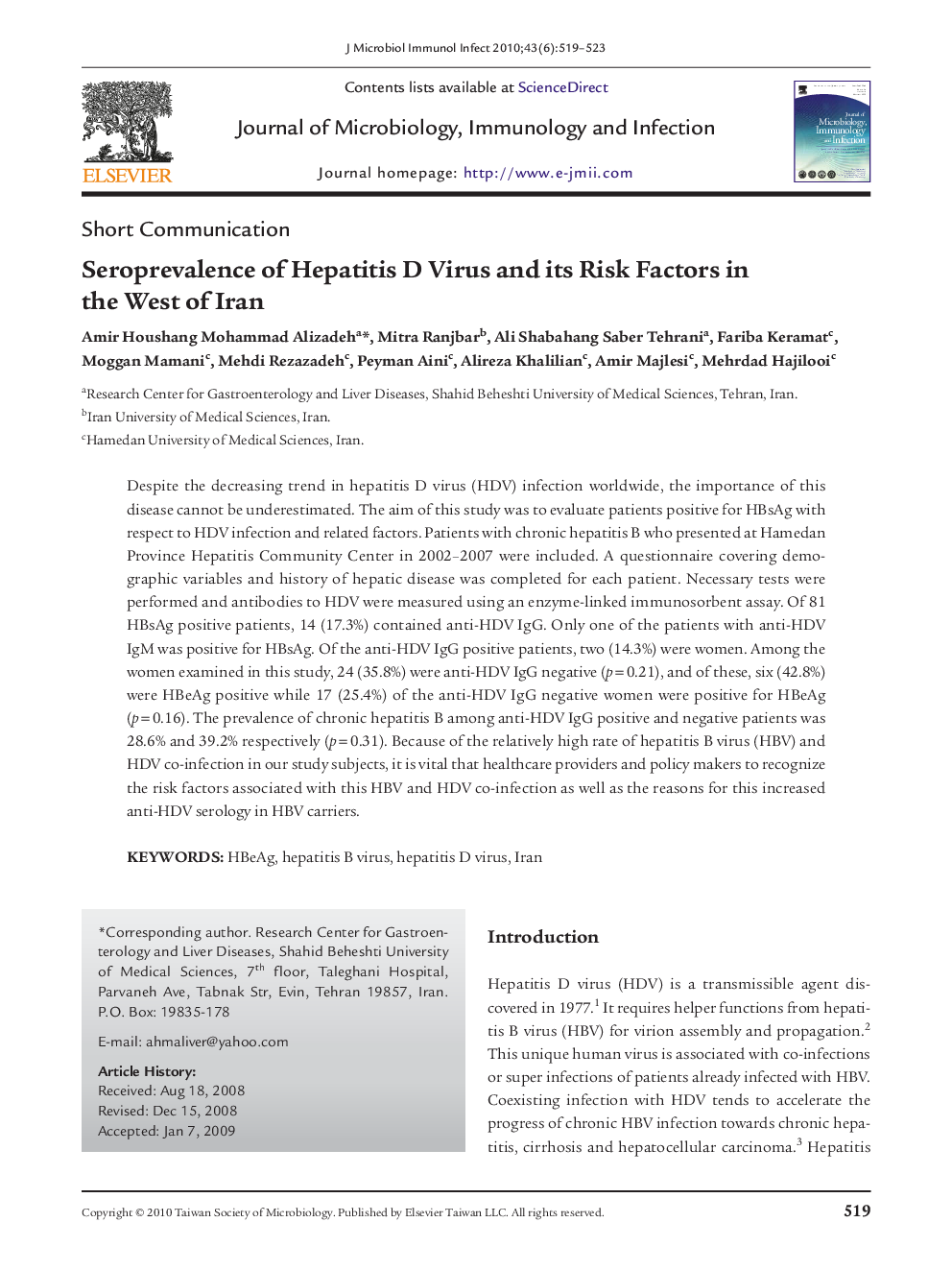| Article ID | Journal | Published Year | Pages | File Type |
|---|---|---|---|---|
| 3378178 | Journal of Microbiology, Immunology and Infection | 2010 | 5 Pages |
Despite the decreasing trend in hepatitis D virus (HDV) infection worldwide, the importance of this disease cannot be underestimated. The aim of this study was to evaluate patients positive for HBsAg with respect to HDV infection and related factors. Patients with chronic hepatitis B who presented at Hamedan Province Hepatitis Community Center in 2002-2007 were included. A questionnaire covering demographic variables and history of hepatic disease was completed for each patient. Necessary tests were performed and antibodies to HDV were measured using an enzyme-linked immunosorbent assay. Of 81 HBsAg positive patients, 14 (17.3%) contained anti-HDV IgG. Only one of the patients with anti-HDV IgM was positive for HBsAg. Of the anti-HDV IgG positive patients, two (14.3%) were women. Among the women examined in this study, 24 (35.8%) were anti-HDV IgG negative (p = 0.21), and of these, six (42.8%) were HBeAg positive while 17 (25.4%) of the anti-HDV IgG negative women were positive for HBeAg (p = 0.16). The prevalence of chronic hepatitis B among anti-HDV IgG positive and negative patients was 28.6% and 39.2% respectively (p = 0.31). Because of the relatively high rate of hepatitis B virus (HBV) and HDV co-infection in our study subjects, it is vital that healthcare providers and policy makers to recognize the risk factors associated with this HBV and HDV co-infection as well as the reasons for this increased anti-HDV serology in HBV carriers.
